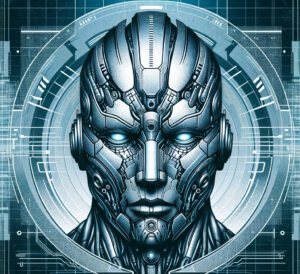H.G. Wells’s The Time Machine not only captivates with its adventurous exploration of time travel but also probes deep into the ethical conundrums such a capability engenders, and rising unioque time travel moral dilemmas. The novel serves as a pivotal discourse on the moral responsibilities and dilemmas faced by individuals who navigate the temporal realm, presenting a nuanced exploration of the implications of altering the tapestry of history.
Time Travel Moral Dilemmas and The Paradox of Intervention
The protagonist’s encounters with the future’s denizens, the Eloi and the Morlocks, encapsulate the primary ethical dilemma of time travel: the quandary of intervention. His initial reluctance to interfere with the natural progression of events underscores fundamental moral dilemmas such as: Do time travelers possess the right, or even the obligation, to intervene in historical processes? This dilemma is further complicated by the potential repercussions of such interventions, highlighting the intricate balance between action and inaction in the temporal domain.
Unraveling the Butterfly Effect
The concept of the butterfly effect — the idea that minor changes can yield significantly divergent outcomes — is vividly illustrated through the Time Traveller’s endeavors to alter events in the future. His attempts to protect Weena and influence the Eloi’s fate underscore the unpredictable nature of tampering with time. This aspect of the narrative invites readers to contemplate the ethical ramifications of making alterations that could potentially lead to unforeseen and perhaps detrimental consequences on a global scale.
Time Travel Moral Dilemmas and The Burden of Knowledge
The Time Traveller’s acquisition of knowledge about humanity’s eventual fate presents another ethical dimension: the responsibility that comes with foresight. The potential to use future insights for personal gain or to manipulate the course of events raises questions about the ethical use of such knowledge. This aspect of time travel ethics examines the moral dilemmas rising from getting information about the future, challenging the notion of knowledge as an unmitigated boon.
Moral Dilemmas and Time Travel Responsibility
The Time Machine posits that the ability to traverse time carries with it a profound moral burden. Time travelers are depicted as custodians of history, endowed with the power to shape the future but also tasked with the responsibility to wield this power judiciously. The novel suggests that ethical considerations must guide temporal voyages, advocating for a thoughtful and compassionate approach to interventions in time.
Contemplating the Ethical Horizon of Time Travel
Wells’s narrative does not offer easy answers to the ethical dilemmas it presents. Instead, it opens a space for critical engagement with the moral questions surrounding time travel. It encourages readers to reflect on the complexities of altering history, the responsibilities of possessing foreknowledge, and the broader implications of time travel for human society.
Forging an Ethical Path Forward
In its exploration of time travel and morality, The Time Machine remains a seminal work that resonates with contemporary discussions about technological advancement and ethical responsibility. As we stand on the cusp of breakthroughs that once belonged to the realm of science fiction, Wells’s novel invites us to navigate the future with a moral compass, ensuring that our forays into the unknown — temporal or otherwise — are guided by ethical principles and a commitment to the betterment of humanity.
